The search terms report is a vital tool for advertisers on Google Ads, allowing them to uncover the specific search queries that trigger their ads. However, with recent updates to the Google Ads platform, the location of the search terms report has changed. In this article, we will guide you through the step-by-step process of finding the search terms report in Google Ads in 2023.
How to Find the Search Terms Report in Google Ads 2023
Accessing the Campaign:
To begin, log in to your Google Ads account and navigate to the campaign for which you want to view the search terms report.
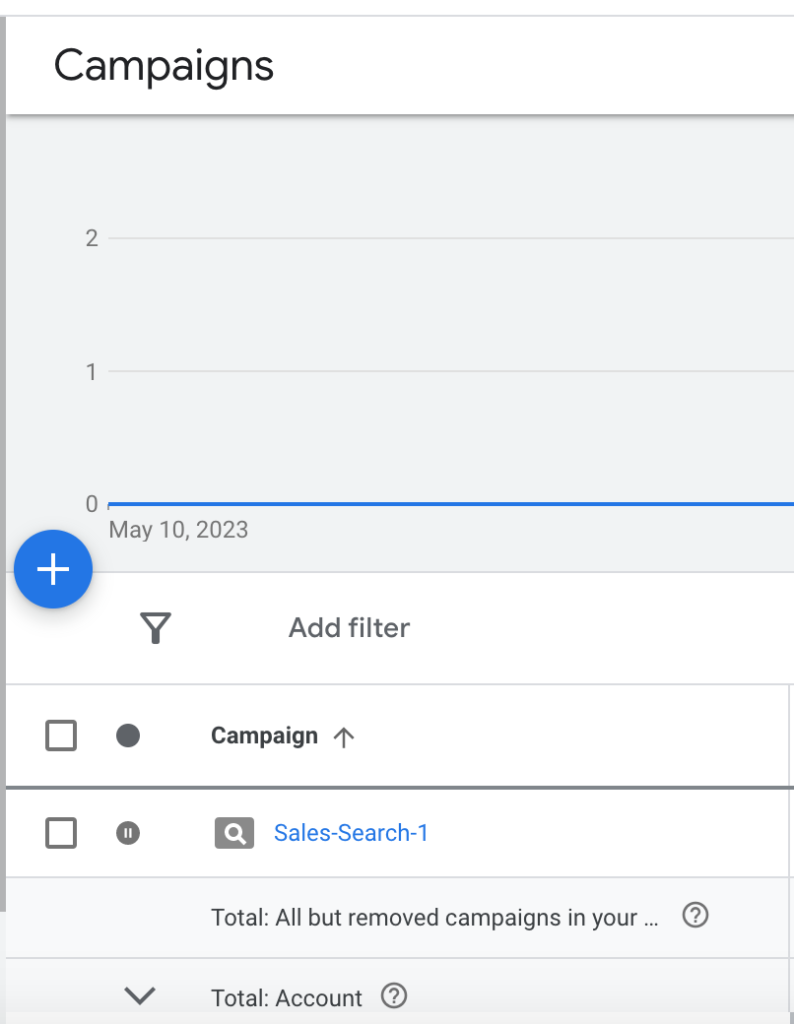
Click on “Keywords”:
Once inside the campaign, look for the left sidebar. Instead of finding the search terms report directly, click on the “Keywords” option.
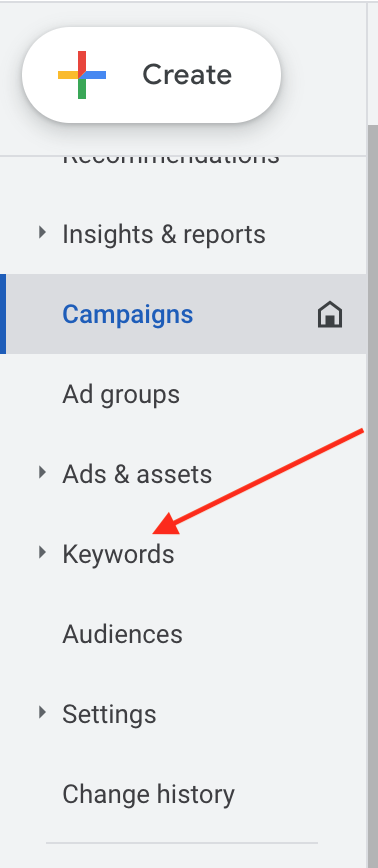
Select Keywords:
On the “Keywords” page, you will see a list of keywords associated with your campaign. To proceed, click on the checkboxes next to the keywords you want to analyze. You can choose to select all keywords or specific ones based on your requirements.
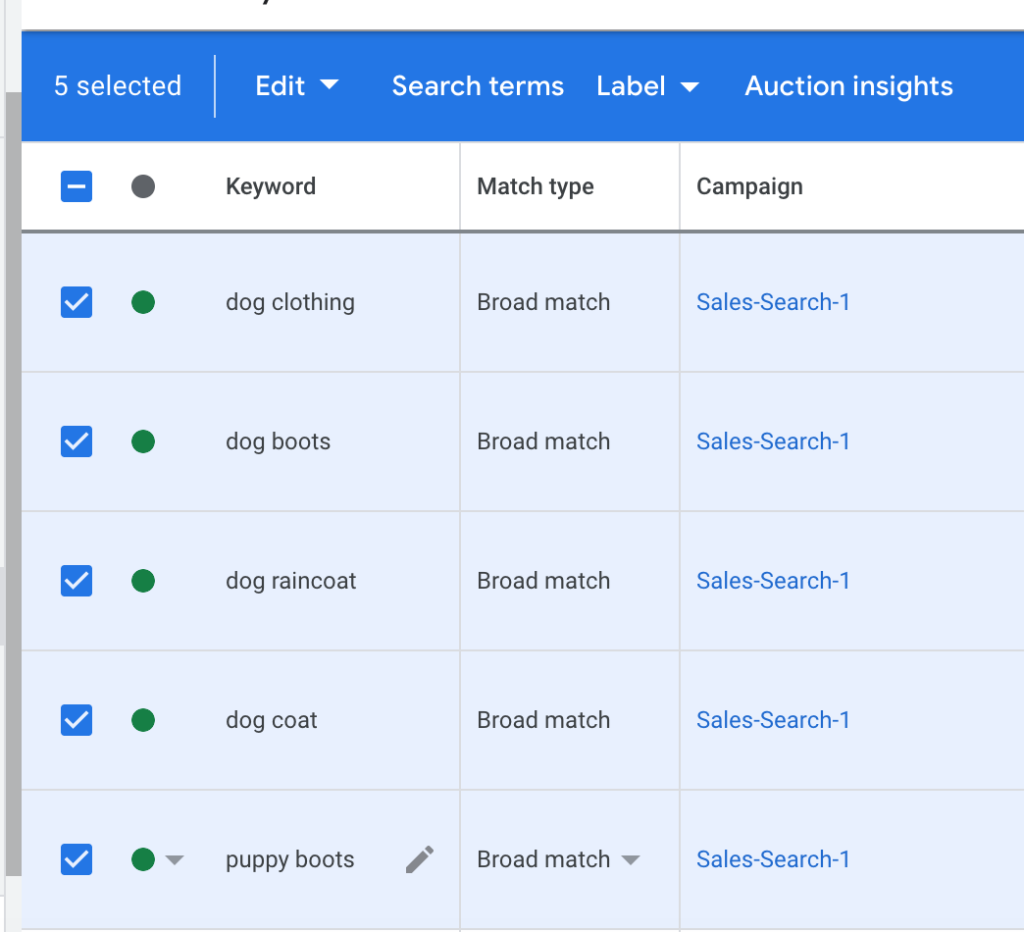
Observe the Blue Bar:
After selecting the desired keywords, you will notice a blue bar appearing at the top of the page.
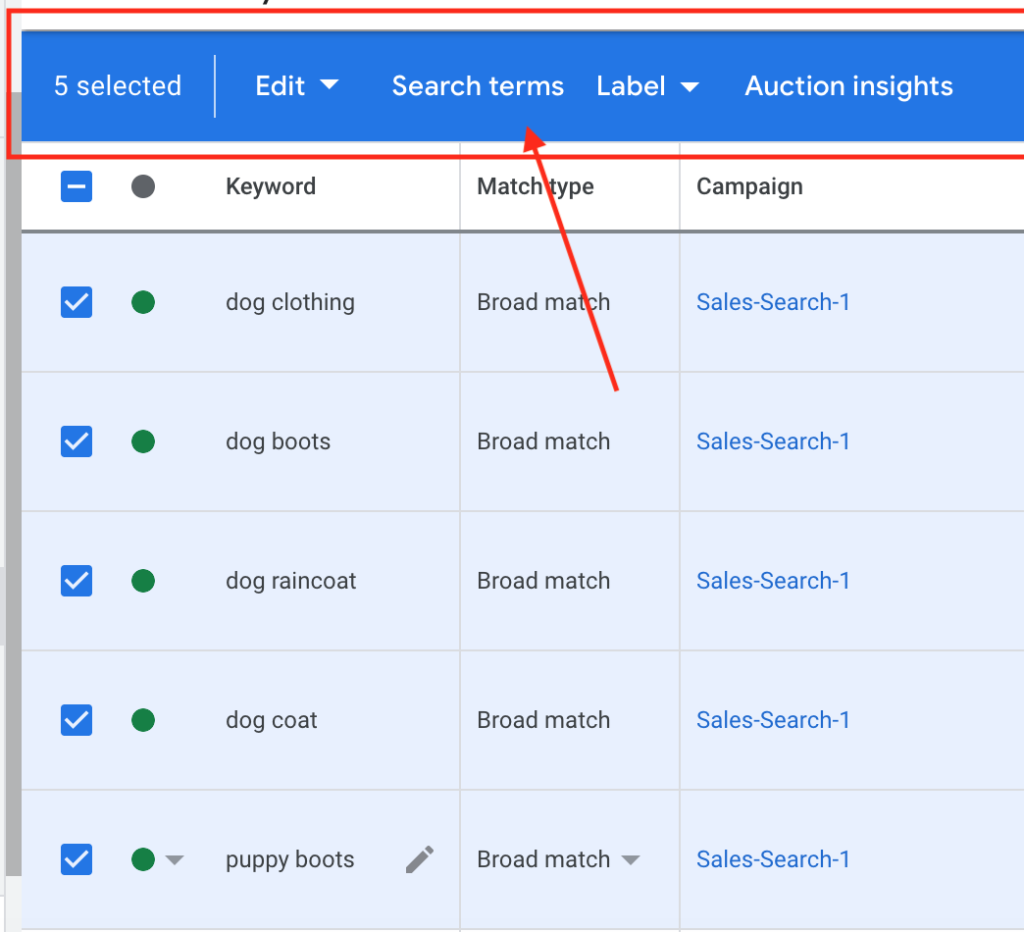
Click on “Search Terms”:
Within the blue bar, locate and click on the “Search Terms” link. This will redirect you to the search terms report for the selected keywords.
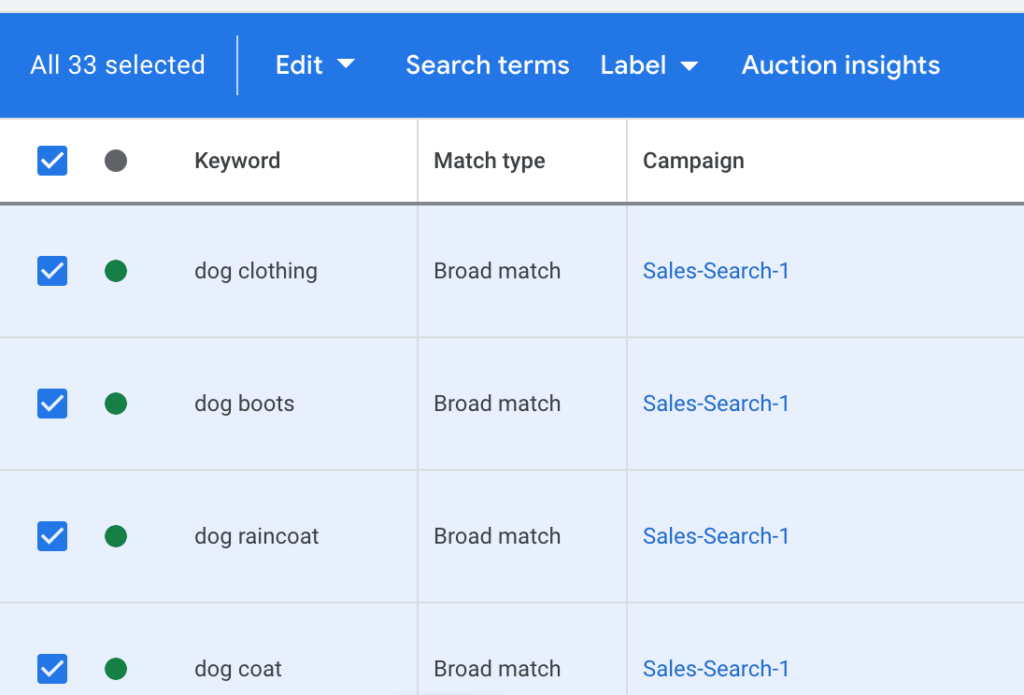
Explore the Search Terms:
You are now on the search terms report page, where you can view all the searches that triggered your ads. The report provides valuable insights into user behavior and the performance of your keywords.
Analyze and Take Action:
Review the search terms list to identify potential keywords you can target or exclude as negative keywords. This information can help refine your ad targeting strategy and optimize your campaigns for better results.
Filter by Level (Optional):
If necessary, you can use the filtering options to view search terms at different levels, such as the entire account, campaign-specific, or ad group-specific. This allows for a more granular analysis of your search term data.
Want Easy Access to the Google Ads Search Terms Report?
Search terms play a pivotal role in the success of Google Ads campaigns, making it crucial for advertisers to closely examine this section of Google Ads. By analyzing the search terms report, advertisers gain valuable insights into the specific queries that users are typing when their ads are triggered.
Here are the reasons why this section is essential and how it can significantly benefit your search campaigns:
Precision in Targeting: The search terms report allows advertisers to see exactly which search queries triggered their ads. This level of visibility enables advertisers to identify highly relevant keywords and phrases that potential customers are using to find products or services. By incorporating these specific search terms into your keyword targeting strategy, you can increase the precision of your ad targeting and ensure that your ads are shown to the most relevant audience.
Keyword Expansion: The search terms report acts as a goldmine for discovering additional keywords. By reviewing the search terms that are driving impressions and clicks, advertisers can uncover new keyword opportunities that they may not have initially considered. These insights can be used to expand your keyword list and capture more relevant traffic, ultimately increasing the reach and effectiveness of your search campaigns.
Negative Keyword Optimization: In addition to finding new keywords, the search terms report is equally valuable for identifying irrelevant or low-performing search terms. By reviewing this section, advertisers can identify search queries that are not relevant to their offerings or are generating clicks without conversions. This information allows advertisers to add these irrelevant search terms as negative keywords, preventing their ads from being triggered by irrelevant queries and ensuring that their budget is focused on high-quality traffic.
Budget Optimization: The search terms report can help optimize your budget allocation by identifying search terms that are driving a significant portion of your spend. By reviewing the report, advertisers can identify expensive or non-converting search terms and take appropriate actions. This may involve bidding adjustments, pausing specific keywords, or implementing negative keywords to optimize the budget allocation and maximize the return on investment.
Improved Ad Copy and Landing Pages: Analyzing the search terms report can also provide valuable insights into user intent and preferences. By understanding the language and context of the search queries that led to ad impressions, advertisers can refine their ad copy and landing pages to align more closely with the users’ needs and expectations. This can enhance the overall user experience, increase ad relevance, and potentially improve the campaign’s click-through rates and conversion rates.
Although the search terms report in Google Ads has undergone changes in its location, it remains a powerful resource for advertisers. By following the steps outlined in this article, you can easily find and access the search terms report, enabling you to uncover valuable keyword insights and make informed decisions to enhance your advertising campaigns on Google Ads in 2023.
Related
Google Ads vs. Google Hotel Ads: Which is Right for Your Hotel?
Can You Add Negative Keywords to Performance Max Campaigns?
How is GA4 Real Time User Tracking Different from the Original Google Analytics?